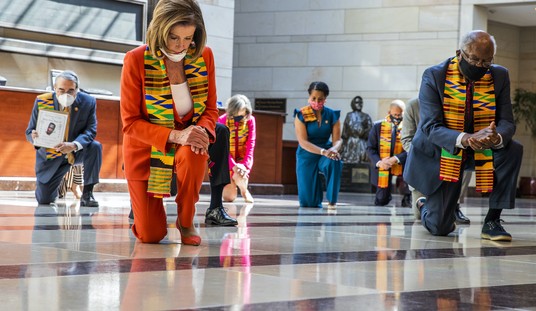Two of the last three budgets have (or will) passed Congress in omnibus form. Democrats played keep-away with FY2009 in order to avoid dealing with George Bush, and instead passed continuing resolutions until they could get an omnibus bill for Barack Obama to sign. For FY2011, the Democrats didn’t bother to produce a budget at all until after the midterms despite having large majorities and a Democrat in the White House, instead waiting until now to push another huge omnibus spending bill through the lame-duck session. This approach creates pressure for an all-or-nothing vote on the entire federal spending plan, steamrolling those who oppose specific areas of spending — and it’s hard to argue that this is an accident.
Republicans planning their new House majority intend to proceed in the opposite direction. Instead of the omnibus approach or even the normal process of having a dozen or so large appropriations, the GOP will break spending bills down further to fund agencies separately — or not at all:
House Republicans seem intent on blowing up the staid appropriations process when they take power in January — potentially upending the old bulls in both parties who have spent decades building their power over the federal budget.
The plans include slicing and dicing appropriations bills into dozens of smaller, bite-size pieces — making it easier to kill or slash unpopular agencies. Other proposals include statutory spending caps, weekly votes on spending cuts and other reforms to ensure spending bills aren’t sneakily passed under special rules.
On some level, their plans may create a sense of organized chaos on the House floor — picture dozens of votes on dozens of federal program cuts and likely gridlock on spending bills. And don’t forget that a lot of these efforts will die with a Democratic Senate and a Democrat in the White House.
But the intent is to force debate as much as to actually legislate —and make Old Guard Republicans and Democrats uncomfortable with a new way of thinking regarding the size and scope of government.
The Senate can combine these bills into larger appropriations, but only if they don’t add what the House has redacted. Otherwise, the conferences will get rather contentious, and won’t favor the Democratic majority there. Greater specificity brings greater accountability, which is exactly what voters wanted in both 2010 and 2006.
Not all Republicans are willing to go quietly:
“John should talk with the professional appropriators about the complexities, rather than talk off the top of his head. His plans would take a huge amount of the House’s time, but what would it accomplish?” said a dubious former House Republican member of the Appropriations Committee who spoke on condition of anonymity.
“Professional appropriators”? Houston, we’ve found our first problem. We don’t need “professional appropriators,” nor do we need “12 Cardinals” directing all of the spending — and aggrandizing their own personal power. It seems Boehner has a better idea of what he needs to do to reform the system than some on his team.
As far as the time it takes to appropriate funds … so? Democrats had all year with the regular process and the omnibus option and they’re still not proposing either one, two months after the start of the fiscal year. Besides, what exactly is the House’s prime responsibility? Isn’t it to budget for federal operations and review the performance of its component agencies? If the House spent more time on these tasks, they’d have a lot less time for mischief like ObamaCare and cap-and-trade.
We don’t need cardinals, professional appropriators, nor adherence to a spending system that has run the federal government off the rails already. We need a lot more eyes and a lot more sunlight on budgeting, and a renewed focus on accountability. This is a huge step in the right direction.








Join the conversation as a VIP Member